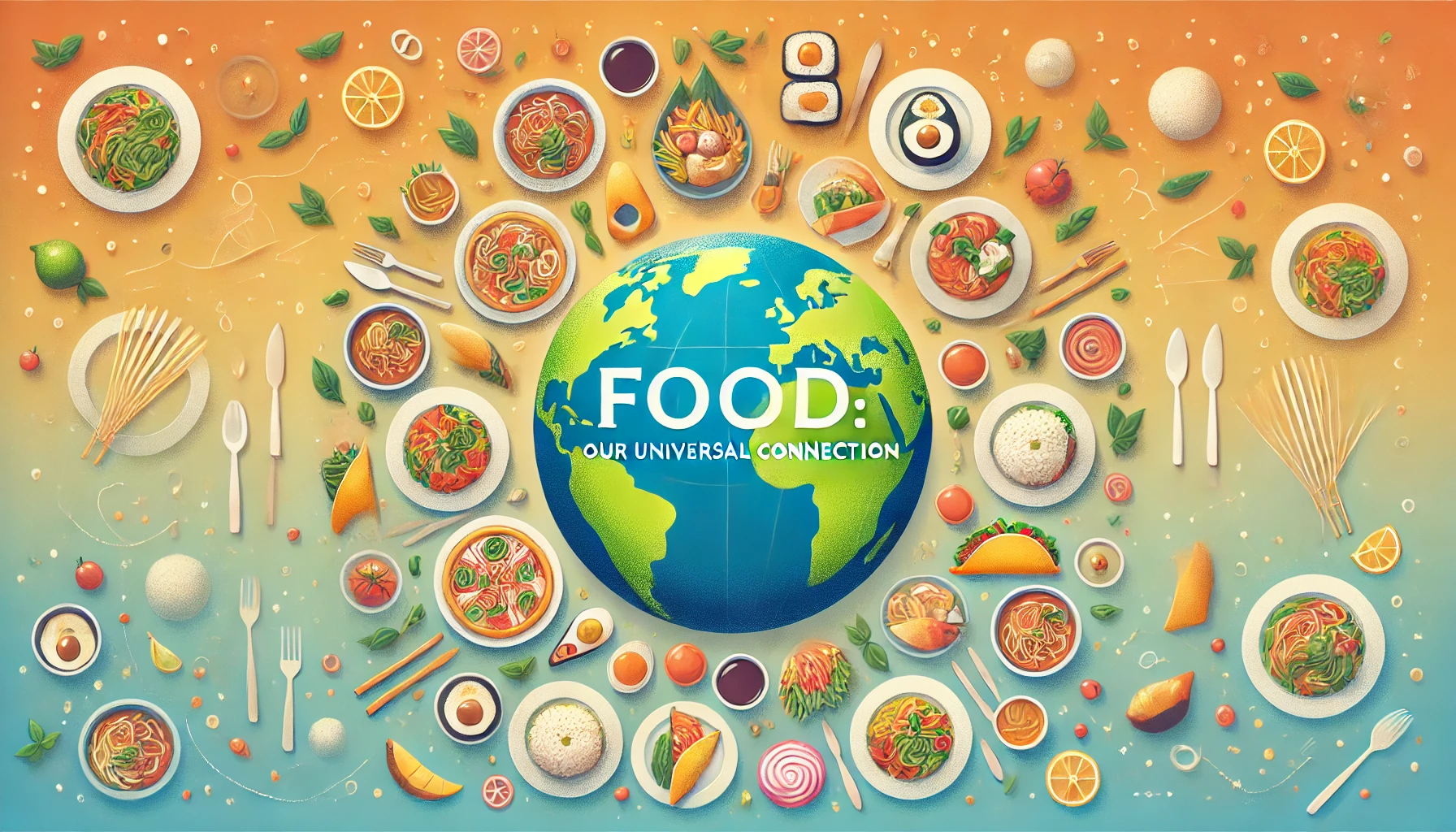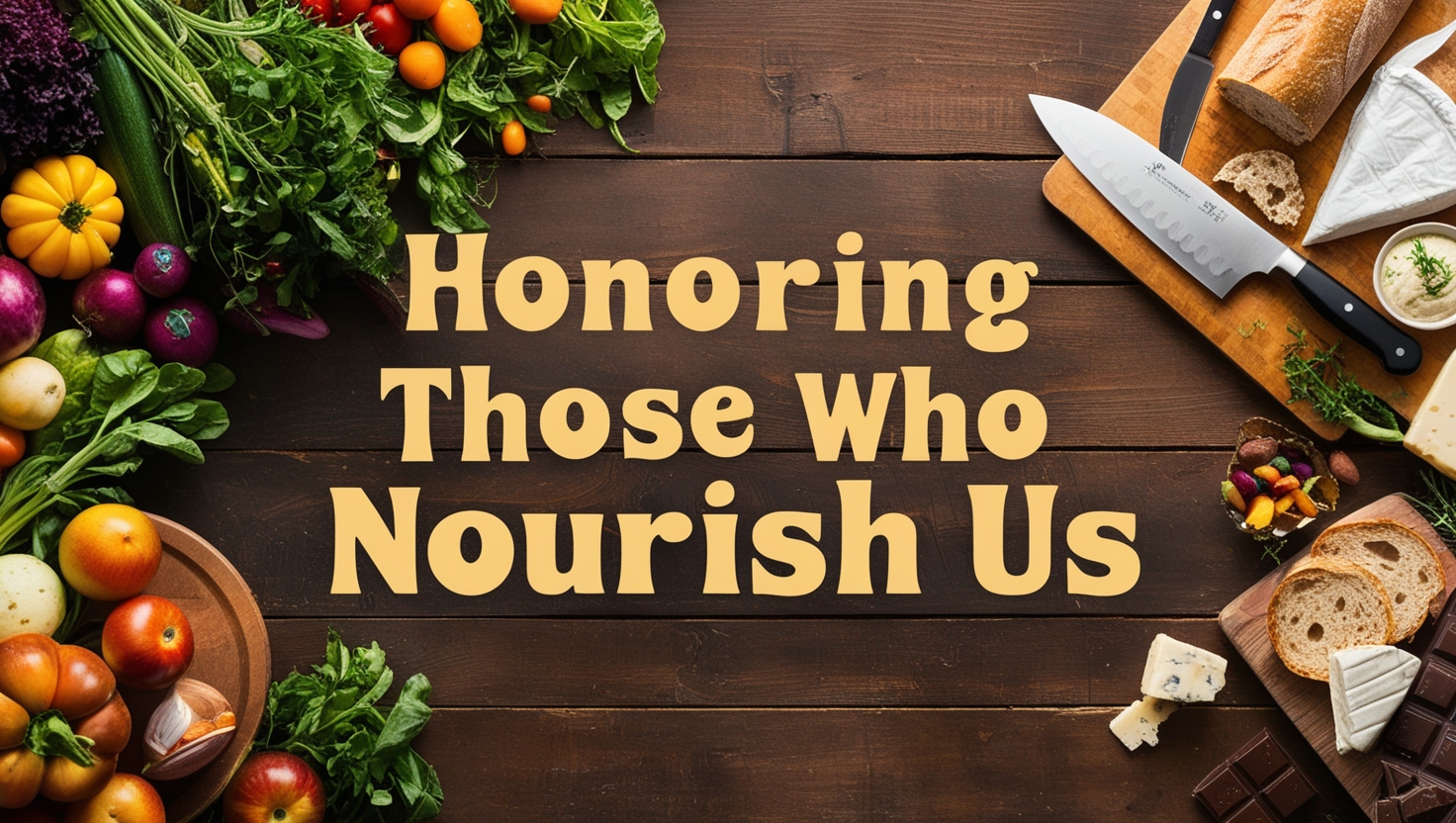Food is Our Common Ground: A Universal Experience
Food transcends the barriers of language, culture, and geography. It is more than sustenance; it is a shared human experience that connects people across the globe. The universal nature of food makes it a central thread in the fabric of human life, binding communities and creating memories. This article delves deep into the significance of food as a common ground, exploring its role in culture, tradition, and personal relationships.
Food as a Cultural Bridge
Food is a mirror reflecting a community’s history, geography, and way of life. Each dish tells a story of migration, trade, and adaptation.
The Role of Geography
Geography plays a significant role in shaping culinary practices. For example, the Mediterranean diet, rich in olive oil, fresh vegetables, and seafood, is influenced by the region’s climate and access to the sea. Similarly, the spices of Indian cuisine reflect the country’s tropical climate and trade history.
Culinary Exchange Through Trade
The spice routes, Silk Road, and other ancient trade networks were pivotal in spreading ingredients and cooking techniques. Italian pasta, for instance, is believed to have origins in Chinese noodles brought to Europe by traders like Marco Polo.
Food Festivals as Cultural Celebrations
Festivals like Diwali in India, Thanksgiving in the United States, and the Lunar New Year in East Asia highlight the role of food in cultural expression. These occasions bring people together to share traditional dishes that carry deep cultural significance.
Food and Human Connection
Sharing food is one of the simplest and most profound ways to connect with others. Meals often serve as a platform for storytelling, celebration, and building relationships.
Family Bonding
Meals are often the cornerstone of family life. Around the dinner table, families share stories, discuss their day, and build a sense of belonging. This tradition is universal, whether it’s a Sunday roast in the UK or a traditional family-style meal in China.
The Role of Food in Celebrations
Weddings, birthdays, and other significant life events are incomplete without a feast. The choice of food often reflects the importance of the occasion, with special dishes reserved for such events.
Breaking Barriers
Food acts as a bridge in times of conflict or misunderstanding. Sharing a meal can dissolve tensions and create a platform for dialogue, as seen in diplomatic banquets and cross-cultural events.
The Science Behind Food’s Universality
Food’s universal appeal is deeply rooted in biology and psychology. It is not just a necessity but also a source of pleasure and comfort.
The Pleasure of Eating
The human brain is wired to seek the taste of fats, sugars, and salt, which were scarce in prehistoric times but essential for survival. This biological drive makes food inherently enjoyable.
Food and Memory
The connection between food and memory is profound. A simple dish can transport someone back to their childhood, evoking powerful emotions and nostalgia. This connection is due to the brain’s olfactory bulb, which links smell and memory.
Comfort Foods
During times of stress or sadness, many turn to comfort foods like chocolate, ice cream, or a warm bowl of soup. These foods trigger the release of dopamine, providing a sense of comfort and happiness.
Globalization and Food Diversity
The modern era of globalization has introduced people to cuisines from every corner of the world. While this has enriched food culture, it also raises questions about authenticity and sustainability.
The Rise of Fusion Cuisine
Fusion cuisine blends elements from different culinary traditions to create innovative dishes. Examples include sushi burritos and kimchi tacos, which showcase the creativity of combining flavors and techniques.
The Challenge of Authenticity
As global cuisines become mainstream, there is a growing debate about the authenticity of dishes. Is a dish truly Italian if it is modified to suit local tastes? Purists argue for preserving traditional recipes, while others embrace adaptation.
The Role of Technology
Technology has made international cuisine more accessible. Food delivery apps and cooking tutorials allow people to experience global flavors from the comfort of their homes.
Food and Sustainability
In a world facing environmental challenges, food sustainability is becoming increasingly important. What we eat impacts not just our health but also the planet.
The Environmental Impact of Diets
The production of meat and dairy has a significant carbon footprint. Shifting to plant-based diets can reduce greenhouse gas emissions and conserve resources like water and land.
The Rise of Plant-Based Foods
The popularity of plant-based diets is growing, with alternatives like tofu, tempeh, and plant-based meats gaining traction. These options offer similar textures and flavors while being more sustainable.
Food Waste
Nearly one-third of all food produced globally is wasted. Reducing food waste through better storage, planning, and sharing surplus food can help address hunger and environmental issues.
Food as Medicine
The concept of food as medicine is ancient but remains highly relevant. A balanced diet can prevent and even treat various ailments.
Traditional Healing Foods
Many traditional diets are built around foods with medicinal properties. For instance, turmeric in Indian cuisine is known for its anti-inflammatory benefits, while green tea in East Asia is celebrated for its antioxidants.
The Role of Superfoods
Superfoods like quinoa, blueberries, and avocados have gained popularity for their nutrient density. These foods are rich in vitamins, minerals, and antioxidants that promote health and well-being.
Modern Nutrition Science
Advancements in nutrition science are shedding light on how specific foods impact health. Personalized nutrition, tailored to an individual’s genetics and lifestyle, is an emerging field.
Food and Technology: The Future of Eating
Technology is transforming how we grow, prepare, and consume food. Innovations like lab-grown meat and vertical farming are shaping the future of food.
Lab-Grown Meat
Lab-grown meat offers a sustainable alternative to traditional livestock farming. It is produced by cultivating animal cells, reducing the need for land and resources.
Vertical Farming
Vertical farming uses stacked layers to grow crops in controlled environments. This method saves space and water, making it ideal for urban areas.
Smart Kitchens
Smart kitchen appliances, from voice-activated ovens to AI-powered recipe assistants, are making cooking more accessible and efficient.
Food as a Tool for Social Change
Food can be a powerful tool for addressing social issues, from hunger to inequality.
Community Kitchens
Community kitchens provide meals to those in need, fostering a sense of solidarity and support. These initiatives are particularly crucial during disasters and economic crises.
Fair Trade Practices
Fair trade ensures that farmers and workers receive fair wages and work under safe conditions. Supporting fair trade products empowers marginalized communities.
Food Activism
Food activists raise awareness about issues like food deserts, agricultural practices, and animal rights. Movements like Slow Food promote sustainable and ethical eating habits.
Conclusion
Food is not just a necessity; it is a universal experience that brings people together. From its role in cultural identity to its potential for driving social change, food touches every aspect of human life. As we move forward, embracing the diversity and sustainability of our diets will ensure that food remains a source of joy and connection for generations to come.








Leave a Reply